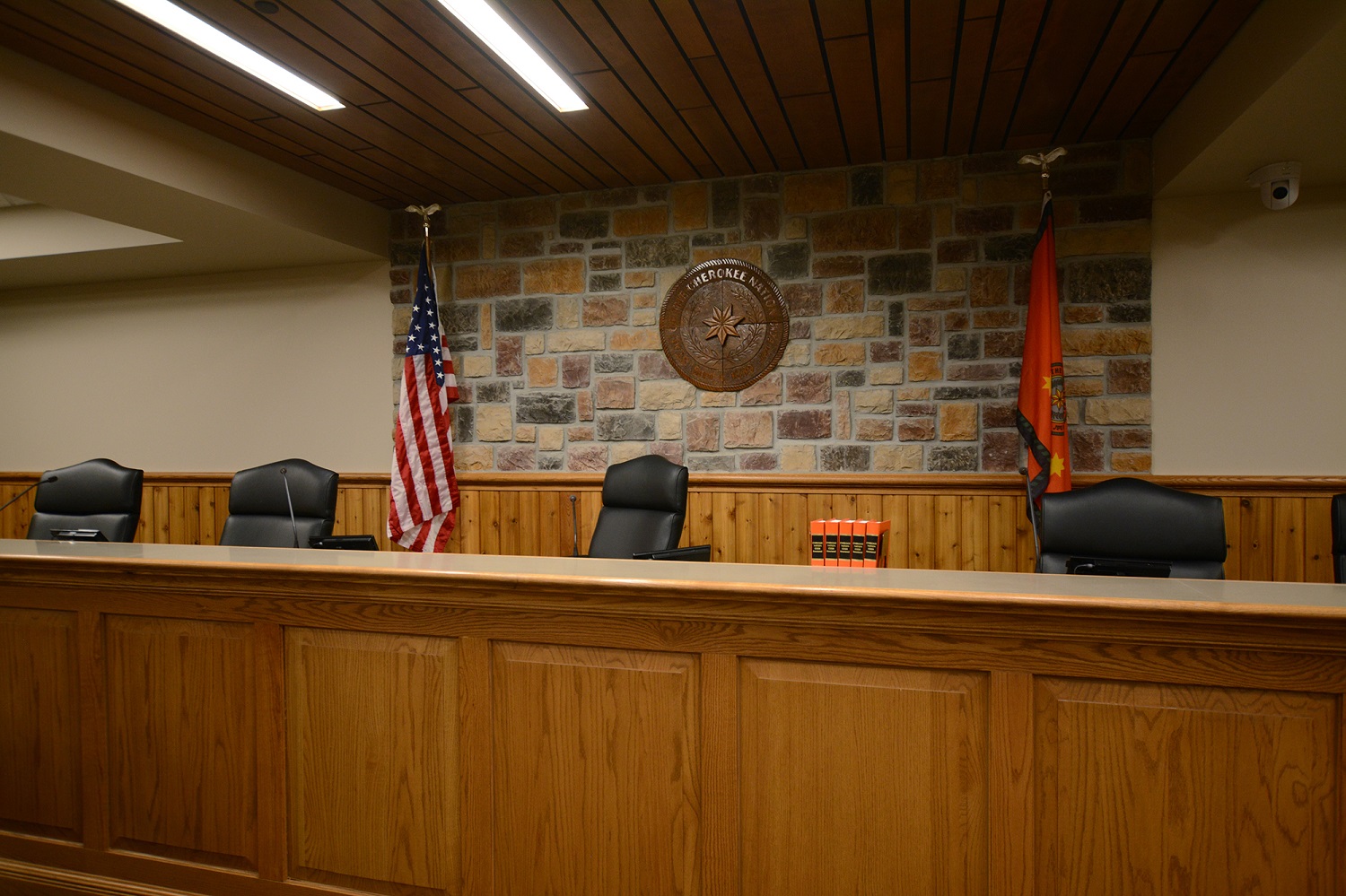TAHLEQUAH, Okla. – Today, the Council of the Cherokee Nation approved a historic $1.52 billion budget for Fiscal Year 2021 and passed legislation designed to address the opportunities and challenges created by the United States Supreme Court’s recent decision in McGirt v. Oklahoma. The “Cherokee Nation Reservation, Judicial Expansion and Sovereignty Protection Act,” which takes effect today, is designed to secure the sovereignty of the Cherokee Nation and its land, as affirmed by the court decision, while protecting the health and welfare of Cherokee citizens and neighbors throughout Oklahoma.
Specifically, the act authorizes the expansion of Cherokee Nation’s judiciary, prosecution staff and marshal service to ensure adequate court, prosecution and law enforcement capacity, incarceration and rehabilitation services, as well as other important resources. It will allow key Cherokee Nation agencies to enter into agreements, evaluate resources, and for courts to appoint referees who meet the Constitutional and statutory requirements for appointment. It also allows the Cherokee Nation to go after grants or federal funding for adequate staffing and resources.
“With today’s passage of the Cherokee Nation Reservation, Judicial Expansion and Sovereignty Protection Act, the Tribal Council has made clear that the Cherokee Nation is committed to affirming our sovereignty while taking the necessary steps to expand our capacity and resources in the wake of the McGirt decision,” said Principal Chief Chuck Hoskin Jr. “Alongside the recently established sovereignty commission, today’s action will enable us to ensure our law enforcement and public safety systems can continue to function effectively as we respond to this historic Supreme Court victory for Indian Country.”
The legislation passed unanimously.
“The Cherokee Nation is committed to fighting for our rights and our sovereignty, and with this act we can continue to do so while ensuring our communities have the resources and capacity they need,” said District 9 Tribal Councilor Mike Shambaugh. “I look forward to working with my fellow Council members, Chief Hoskin, and all of the Cherokee Nation to continue to address the challenges presented by the court decision and fight for the best outcomes for our people.”
On August 13, Chief Hoskin established the Commission for the Protection of Cherokee Nation Sovereignty. Alongside the Act, the commission will make recommendations and examine related areas on how the Cherokee Nation can best respond to the McGirt decision.
Cherokee Nation’s FY 2021 budget of $1.52 billion is the largest in Cherokee Nation history and will allow the tribe to continue to serve more Cherokees with college scholarships, add more energy-efficient buildings in tribal communities, revitalize the Cherokee language and more, in spite of the global COVID-19 pandemic. Chief Hoskin expressed his appreciation to the teamwork exemplified by Cherokee Nation employees, including the Treasurer’s office, in working together to secure a strong financial footing during the worst public health crisis in generations.
Cherokee Nation advocated for federal funding through the CARES Act from the U.S. Treasury to help address the needs of Cherokee citizens. By using those funds, the Cherokee Nation Respond, Recover and Rebuild spending plan is helping provide food to elders, keeping employees and communities safe, and allowing the tribe to keep programs operating without cuts to services or employees.
The budget was approved unanimously.
In other business, the Council also approved an amendment to the Cherokee Nation Cemeteries Preservation Act. The Act provides funding for the preservation and maintenance of traditional or historically significant Cherokee cemeteries. The amendment will allow for the repair and restoration of unmarked or damaged historical Cherokee graves that are threatened by neglect or a lack of maintenance. District 13 Tribal Councilor Joe Deere sponsored the legislation, which will allow up to $200 for the placement of headstones at qualifying gravesites that date prior to 1839.

